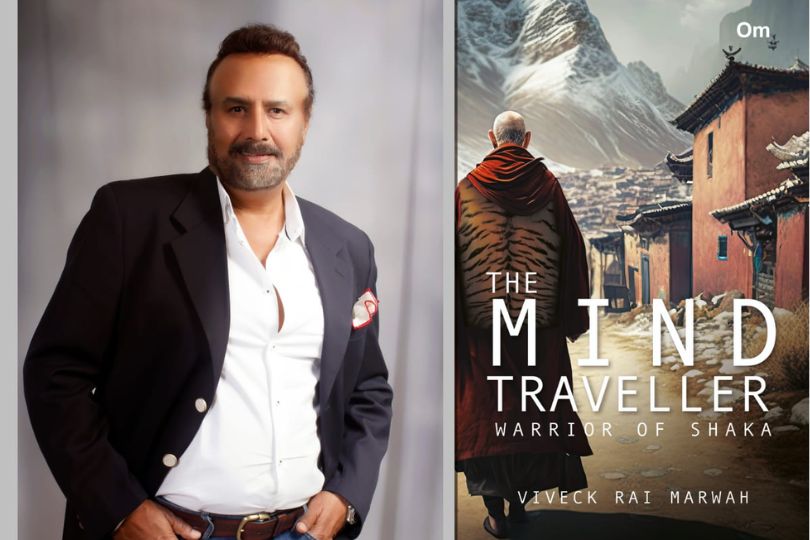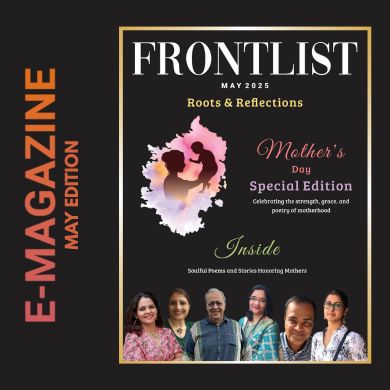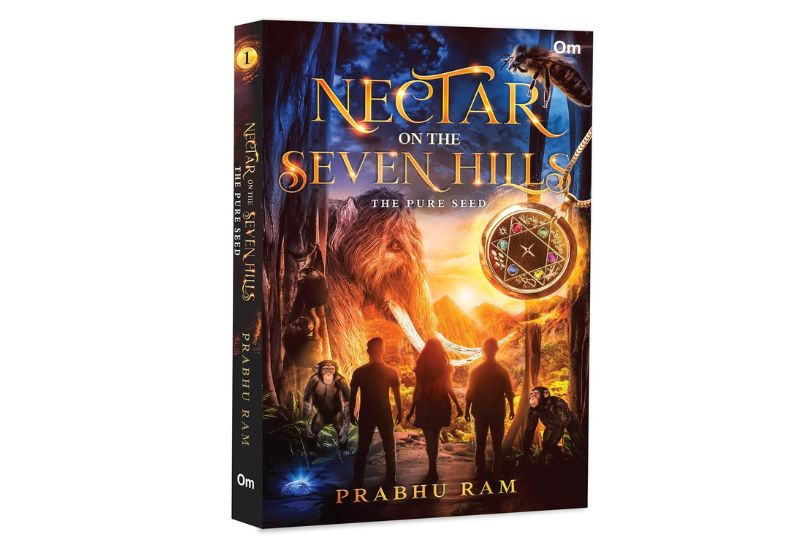Interview with Viveck Rai Marwah Author of “Mind Traveller ”
"Dive into the insightful interview with Viveck Rai Marwah, author of 'Mind Traveller,' exclusively on Frontlist. Discover the mind's journey and literary insights.on Jan 09, 2024

Frontlist: Sankalp, the protagonist, undergoes a profound transformation. How did you conceptualize his character and journey from a victim of tragedy to a warrior monk? Can you share personal experiences or philosophical insights directly influencing Sankalp's character development?
Viveck: The book talks about struggle and how it defines and molds character. The protagonist has a choice, like most of us in life. Either confront or confirm. If you confront, the struggle starts. You adapt, change, and rise.
On the other hand, if you confirm, you succumb, you give up. You become a victim. We can draw on instances from various stages in life; when we look back, we will know. The character reflects all mythological heroes, be it Shri Ram, Shri Krishan or even Guru Gobind Singh. You will notice that they all rose from struggle. They made a selfless choice to fight their circumstances and rise beyond them.
Frontlist: Why did you choose the early 12th-century Lhasa as the backdrop for your novel? How does the historical and religious significance of the location contribute to the narrative? How did your visits to Tibet and the Himalayan regions shape your portrayal of the cultural and religious elements in the story?
Viveck: The Yuans, a Mongoloid race, started their first invasion of Tibet around the 12th century AD. A plot by Genghis Khan to invade Tibet was formalized as early as 1206 AD. However, the first invasion finally occurred around 1240 AD into the Tibetan plateau led by a Mongol general named Darkhan Doodra (the antagonist). This forms an intrinsic part of the story. What is of particular interest is that a lot of our Vedic scriptures are stored in Tibet, more specifically, the Kangyur texts, which literally translate to the spoken words of the Buddha. The narrative largely reflects the geographical and spiritual aspects of the land and its culture.
Frontlist: The novel draws heavily from Buddhist theology and philosophy. How did your studies and experiences with Buddhist culture enrich the narrative? In what ways do you think incorporating Buddhist principles adds depth to your book's exploration of life, death, and the human condition?
Viveck: Well, the book draws on specific aspects of the Kangyur text, specifically the Kalachakra Sutra. It's a polysemic term that translates into what we can call the wheel of time. It contains knowledge of cosmology, soteriology, and metaphysics (yoga and tantra). It also talks about a mythic reality whereby cosmic and socio-historical events correspond to the processes in the bodies of individuals. In simple words, it explains how karma influences destiny. Like any other religion, the Buddhist way of life talks about 'life balance,' which is explained in the book. Death is considered a transient phenomenon that exists only as an earthly nuance.
Frontlist: Unlike many protagonists in similar genres, Sankalp responds to loss with empathy and a commitment to protecting the vulnerable. How do you believe Sankalp's approach to grief and loss can resonate with readers on a personal level?
Viveck: I wouldn't say the culmination. Life still goes on, and while it does, there is always a chance for something more exciting! Yes, in the book, that experience or encounter with the monk changes the protagonist's life. There is one such experience that I was privileged to have had, and it reflects and comes across in the book as Kalimpong, the monk, the teacher.
Frontlist: Your experiences have given you a better understanding of ancient Kangyur texts. How did you integrate this knowledge into the narrative, and what inspiration can the readers draw for self-development?
Viveck: Rightly so, I will take you back to your first question. It's his struggle that generates empathy for others. Well, the one lesson that each one of us can draw from this is never to give in or give up!
Frontlist: Your current work is described as a culmination of your experiences. How has your journey, including encounters with mystics, shaped your overall perspective, and how does it manifest in the novel? Are there specific moments or lessons from your travels that directly inspired scenes or concepts in the book?
Viveck: Yes, it does open a window. As I explained earlier, I have drawn from the Kalchakra Sutra from the Kangyur texts. As the name signifies, Kal Chakra is about the flow of time for the world and the individual. It's just not about this life but the times and lives gone by. A critical takeaway from this is that no matter how difficult and tempered these times are, they will change! That your karma today can change your life tomorrow.
Frontlist: Who do you envision as your primary audience for "The Mind Traveller," and what kind of impact do you hope the book will have on readers? Also, how do you believe readers of different backgrounds, including those unfamiliar with Buddhism, will connect with the book's themes?
Viveck: Its principle is easy to understand: never give up on struggles and have faith in that universal power, by whatever name you call it. Trust your belief and, importantly, your actions today as they shape your tomorrow. The relevance of the Kal Chakra has been weaved into the story in simple words without emphasizing the religious aspect of it all. Its unique narrative contains many elements irresistible to readers: time travel, the paranormal, conspiracy, intrigue, and love make the novel not only inspiring but very entertaining.



.jpg)






.jpg)

.jpg)
.jpg)

.jpg)
.jpg)










Sorry! No comment found for this post.